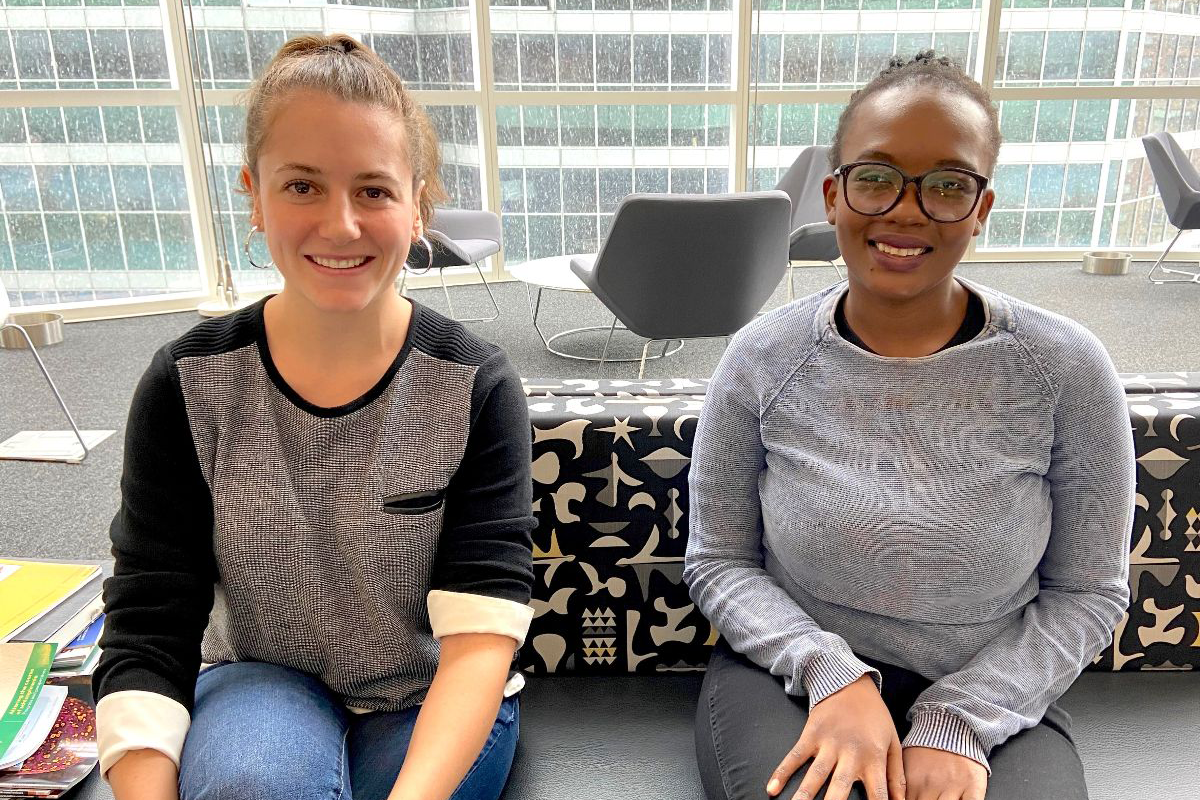International Women’s Day 2020: Researchers in Profile
Summary:
Allison Daniel and Isabel Potani first met in Blantyre, Malawi about four years ago. At the time, Isabel was the head nurse at the Moyo Nutritional Rehabilitation and Research Unit (Moyo) at Queen Elizabeth Central Hospital, and Allison was starting her PhD research on a counseling program for mothers of children with severe acute malnutrition (SAM).
SAM is the most extreme form of undernutrition, defined by the World Health Organization (WHO) as a very low weight for height or presence of nutritional edema. Many children with SAM do not survive, and those that do are often left with long-term impairments in growth and development.
In Isabel’s role as head nurse at Moyo, she supervised a team of nurses involved in care of children with SAM admitted to Moyo, and those enrolled in an outpatient feeding program.
Over the past four years, Allison and Isabel have been running a cluster-randomized controlled trial to look at the effectiveness of the Kusamala Program. Kusamala means “to take care” in Chichewa, the local language in Malawi. The program aims to improve developmental and nutritional outcomes in children with SAM. Isabel and Allison worked closely to pilot and adapt the Kusamala Program for this context, and to train and support five nurses at Moyo on how to deliver the program to mothers. The program integrates nutrition and feeding, water, sanitation, and hygiene (WASH), and psychosocial stimulation.
Today, both Allison and Isabel are PhD students in the Department of Nutritional Sciences at the University of Toronto, working under the supervision of Dr. Robert Bandsma, Principal Investigator at the SickKids Centre for Global Child Health.

What are you working on together now?
Isabel: I met Dr. Bandsma at Moyo during my time as the head nurse and we collaborated on a few different research studies. Following my tenure at Moyo, I moved to Seirra Leone where I continued to work on malnutrition research with Tufts University before joining Dr. Bandsma’s research team again in Malawi, and now as a PhD student at U of T.
I am currently the project lead for the Malawi site within the Childhood Acute Illness and Nutrition (CHAIN) Network, which is a multinational research network with the goal of understanding causes of mortality in children with malnutrition and illness. Our core team in Malawi is comprised of 15 people working in the lab, the hospital, and the field, and they also work on the Kusamala Program trial with me and Allison.
Allison: Aside from the CHAIN Network and the Kusamala Program, we are also doing research on SAM in the wider context, beyond Moyo. Isabel and I recently proposed a project with the Ministry of Health in Malawi to examine the trends in SAM admissions over the last ten years in the country. In addition to this, we are undertaking a systematic review commissioned by WHO to compare various formulations of Ready-to-Use Therapeutic Food, which is provided to children with SAM to promote nutritional recovery.
What are some things that you have learned from one another along the way?
Allison: I have learned an immense amount from working alongside Isabel, from Chichewa phrases to care of children with SAM to leadership skills. She speaks to mothers at Moyo with the same humility as she does with high-level policy makers within and outside of Malawi. I believe this is the type of leadership that all of us working in global health should aspire to.
Isabel: I have had a great collaborative experience with Allison, she is highly skilled, determined, and knowledgeable but is still very open to other perspectives and experiences. For the systematic review that Allison mentioned, she is the lead author and I am learning a lot on research methods and conduct.
What is your message for International Women’s Day?
Isabel: For me, International Women’s Day is a reminder of women's contributions towards addressing global challenges. I have worked with great women in my career like the nurses in Malawi and Sierra Leone, as well as female researchers in various places including SickKids. The most notable project for me is the Kusamala Program where for the first time I saw nurses take the lead on a project and be fully engaged. According to them, the project addresses gaps in the delivery of their services. I also think that this day helps us to acknowledge the great work of women caring for children all over the world, especially in very challenging contexts. Their determination and hard work are really commendable and inspiring.
Allison: As a woman in global health, I would say that it is important to not lose sight of what you are working towards especially when things are challenging. During the last four years in Malawi, I have valued the time that I have spent with mothers at Moyo, learning about their experiences in caring for their children. When I think of International Women’s Day, I think of them.

